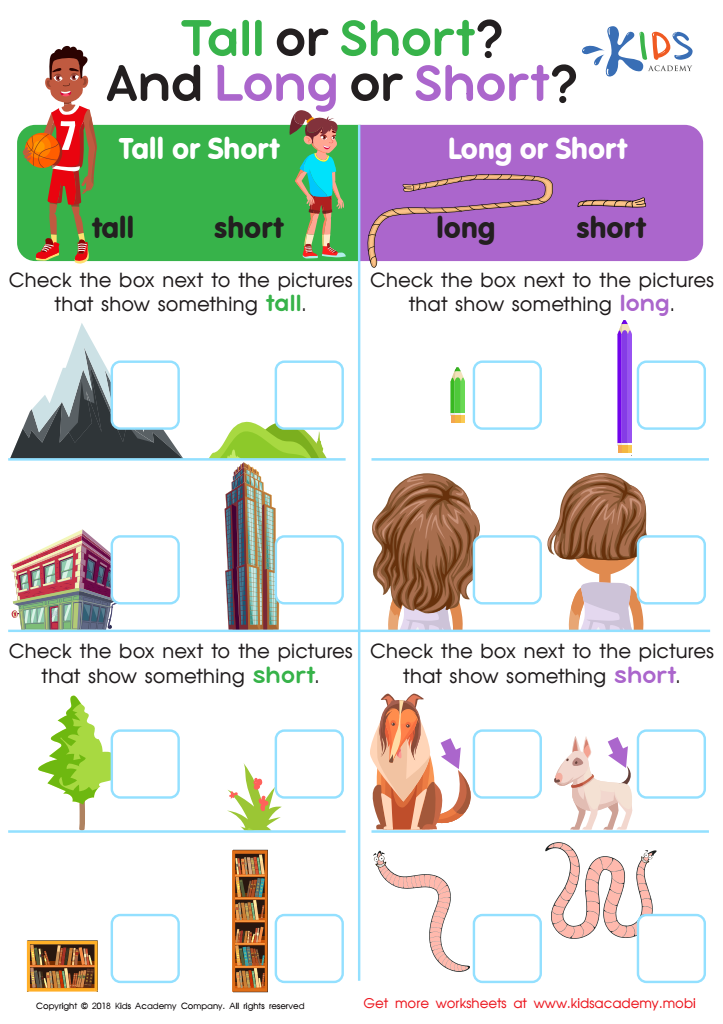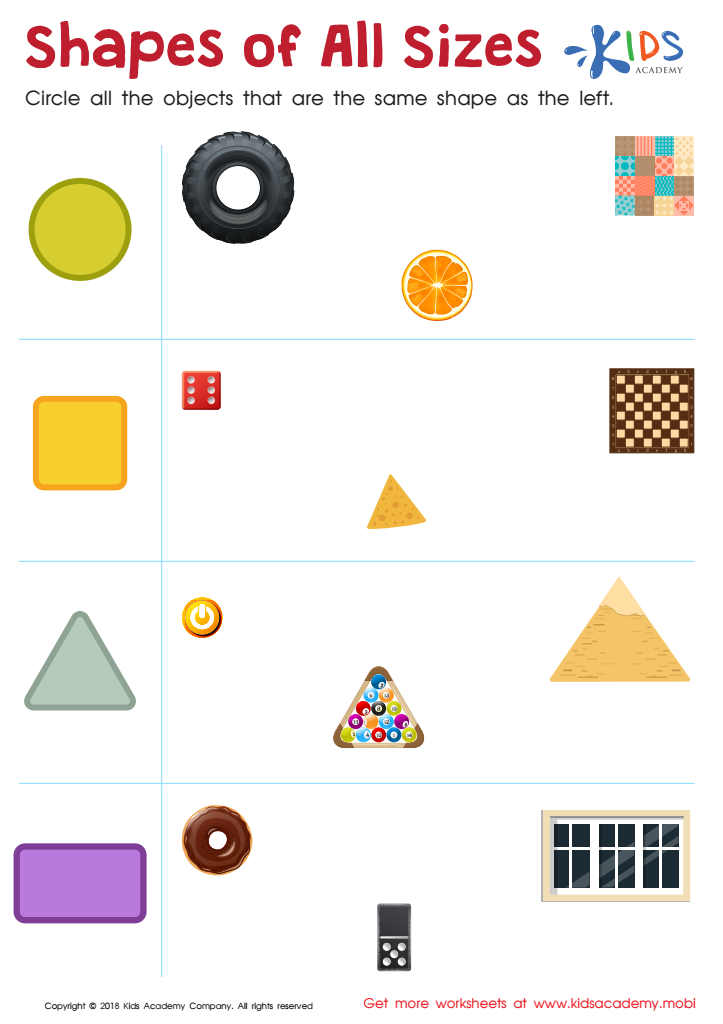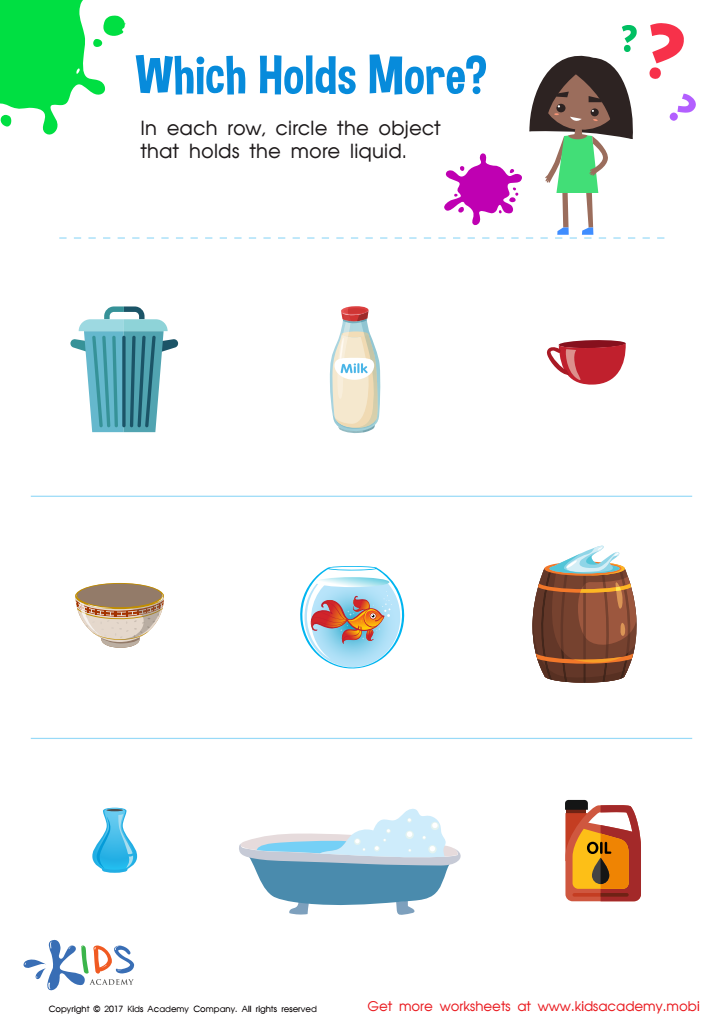Basic measurement concepts Normal Worksheets for 5-Year-Olds
3 filtered results
-
From - To
Introduce your 5-year-old to the world of measurement with our "Basic Measurement Concepts Normal Worksheets". These engaging and educational worksheets help young learners understand foundational measurement concepts in a fun and interactive manner. Through colorful activities and hands-on exercises, children will learn essential skills such as comparing lengths, heights, and weights, and using simple measuring tools. Designed specifically for 5-year-olds, our worksheets aim to build confidence and support early math skills development, preparing them for future academic success. Download now and watch your child enjoy learning with these captivating and age-appropriate worksheets!


Tall or Short and Long or Short? Worksheet


Shapes of All Sizes Worksheet


Which Holds More: Capacity Worksheet
Understanding basic measurement concepts is essential for 5-year-olds as it lays a foundation for their future mathematical and scientific understanding. When children grasp measurement concepts, such as length, weight, and volume, they start to make sense of the world around them in a more structured manner. For parents and teachers, nurturing these skills is vital because they are intertwined with everyday activities and help develop critical thinking and problem-solving abilities.
For instance, sorting objects by size or comparing the height of various items around the house enhances a child's observational skills and attention to detail. These early experiences with measurement also enable children to grasp numerical relationships, aiding their numerical literacy and number sense. Furthermore, simple measurement activities can foster a child's spatial awareness and improve their ability to navigate and interpret their physical environment.
Incorporating these concepts into playful interactions ensures that learning becomes enjoyable and effective. Parents and teachers have the opportunity to integrate measurement-related language into conversations, use measuring tools like rulers and scales, and conduct hands-on activities. By doing so, they build a solid groundwork for more complex mathematical concepts, essential for academic success in later years. Overall, early attention to basic measurement skills plays a crucial role in a child's cognitive development and sets the stage for lifelong learning.

 Assign to the classroom
Assign to the classroom










